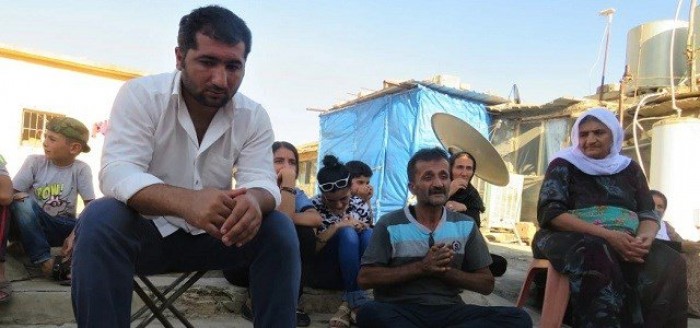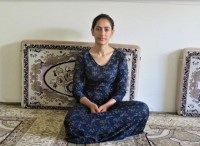Rassegne stampa

Can’t leave Iraq, can’t go back to Iran: Kurdish political refugees in limbo
From Rudaw.net
09-07-2018 - ERBIL, Kurdistan Region – Shaida was just 17 when she fell in love and married an Iranian Kurdish Peshmerga, following him to the Kurdistan Region of Iraq in 2014. By the age of 18, she was a widow.Her husband, Khalid, was killed while fighting the regime in Iran. Now, like many others, she is stuck in limbo, unable to return home and unable to leave the Kurdistan Region.
“We didn’t even reach our second year of marriage,” Shaida tearfully tells Rudaw English. “Now I’m alone here with no family.”
Shaida’s story is similar to many other Iranian Kurds who live in the Kurdistan Region and suffer most from harsh economic conditions, many of them for decades.
These political refugees are forced to live in camps, which lack sufficient support from the KRG and the UN. The Iraqi central government doesn’t recognize them.
Kurds have fled Iran for different reasons and at different times. Oppressed under the Shah, they initially supported the 1979 revolution led by Khomeini. Relations with the new Islamic Republic, however, were fraught from the start.
Elected Kurdish representatives were barred from participation in the government in Tehran, provoking political violence. Throughout the 1980s, Iran’s Kurdish opposition parties encountered deadly clashes with the Iranian regime. Many opposition supporters were forced to flee the country.
Former Peshmerga fighter Osman, now 60, fled to the Kurdistan Region shortly after the revolution and has been living in camps for nearly four decades.
Although he is registered with the UN refugee agency, UNHCR, he has only received financial assistance once from the UN – a mere $435.
Osman survived an assassination attempt in the mid-1990s. He described how three cars drove up and started shooting indiscriminately. The attack left four dead and seven wounded, including Osman.
“Kurdistan is like a prison for us now,” he said. “We don’t live in a state and all Kurdish refugees are prisoners in this jailed Kurdistan.”
A married couple, Azad and Somaya, both came to the Kurdistan Region as young children. Their fathers were Peshmerga fighters in Iran.
Azad receives a small salary as a camp council member. Somaya recently graduated with a bachelor’s degree in economics. However, they are unable to obtain citizenship for themselves or their two-year-old daughter.
“In every country, when a child is born, he or she will receive full citizenship rights, but in Iraqi Kurdistan, children cannot receive these benefits,” Azad said.
Somaya aspires to learn English. Government jobs are out of her grasp without Iraqi citizenship and her lack of English hinders her ability to work in the private sector, even with a university degree.....
//www.rudaw.net/english/kurdistan/080720185
Redazione
Rassegne stampa
19-04-2024 - Giovedì scorso gli Stati Uniti hanno impedito al Consiglio di Sicurezza dell’ONU di portare avanti la richiesta palestinese di essere riconosciuta...
16-04-2024 - KABUL (Pajhwok): Iran and the US have swapped threats at an emergency meeting of the United Nations Security Council, with Tehran and Tel Aviv branding...
16-04-2024 - BAMYAN CITY (Pajhwok): More than 130,000 tourists, including foreigners, visited central Bamyan province to satisfy their curiosity about ancient monuments...
02-04-2024 - The Taliban-run railway authority announced Thursday the signing of a contract with Russian company Gamma for the fourth segment of the second phase...
25-03-2024 - The office of the economic deputy PM tweeted that Mullah Abdul Ghani Baradar said that many facilities will be provided to the residents of Kabul with...






